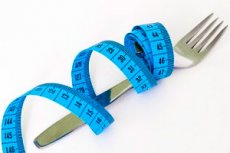New publications
Nutritionists: salt-free diet can harm the body
Last reviewed: 02.07.2025

All iLive content is medically reviewed or fact checked to ensure as much factual accuracy as possible.
We have strict sourcing guidelines and only link to reputable media sites, academic research institutions and, whenever possible, medically peer reviewed studies. Note that the numbers in parentheses ([1], [2], etc.) are clickable links to these studies.
If you feel that any of our content is inaccurate, out-of-date, or otherwise questionable, please select it and press Ctrl + Enter.

Nutritionists are confident that completely eliminating salt from the diet can be no less harmful to the body than its excess.
Sodium chloride salt crystals are a common attribute in the kitchen of almost any person. This same sodium chloride takes an active part in all sorts of processes occurring in the body. For example, without it, the normal functioning of nerve endings and muscles, as well as high-quality electrolyte exchange, are impossible.
Whenever sweat is released through the pores of the skin - for example, in hot weather or during exercise - a person loses sodium chloride, a deficiency of which in the body can cause a feeling of weakness and even clouding of consciousness.
A microelement with an antagonistic effect – potassium – is an equally necessary component for the metabolism. If sodium chloride retains moisture in the tissues, then thanks to potassium this same moisture is removed. It follows from this that the amount of sodium consumed by a person should be correctly related to the amount of potassium entering the body.
It is this balance that is the regulatory link that normalizes the electrolyte and acid-base balance of the body. In addition, the "potassium-sodium" norm serves as a preventive measure for the normal functioning of the heart and blood vessels, as well as for the course of all types of metabolic processes. The main thing is not to overdo it with adding salt to food, while simultaneously consuming the full daily norm of liquid.
Nutritionists point out that different types of salt can have different effects on the body:
- unrefined rock salt, in addition to sodium, is rich in potassium, magnesium, copper and chromium, but requires additional grinding before use;
- sea salt is one of the most useful types of salt, which additionally contains a large amount of selenium and iodine;
- Iodized salt is the regular salt we are used to with added iodine, which is recommended to be added to food by everyone who lives in iodine-deficient regions.
Why is it dangerous to exclude salt from the body? By following a salt-free diet for a long time, a person can have problems with the digestive tract and water-salt balance. With a lack of salt, the process of "washing out" most of the useful substances from the tissues accelerates, a feeling of constant fatigue appears, and the head often spins.
Adding excessive amounts of salt to food, in turn, leads to swelling, dysfunction of the urinary system, heart and blood vessels.
To avoid negative aspects, you need to approach the issue of salt consumption wisely. The average daily intake is considered to be 15 g for an adult. These 15 g include not only sodium chloride in crystals: salt is also found in food products: for example, there is quite a lot of it in tomatoes, kelp, sea fish, celery.
If you add hard cheese or feta cheese to your salad, you don't have to add salt. You can successfully replace salt with kelp powder, sun-dried tomatoes, and celery powder. If you drink enough liquid and eat foods with sodium chloride correctly, you can normalize the intake of salts into the body and stabilize the water-salt balance.

 [
[